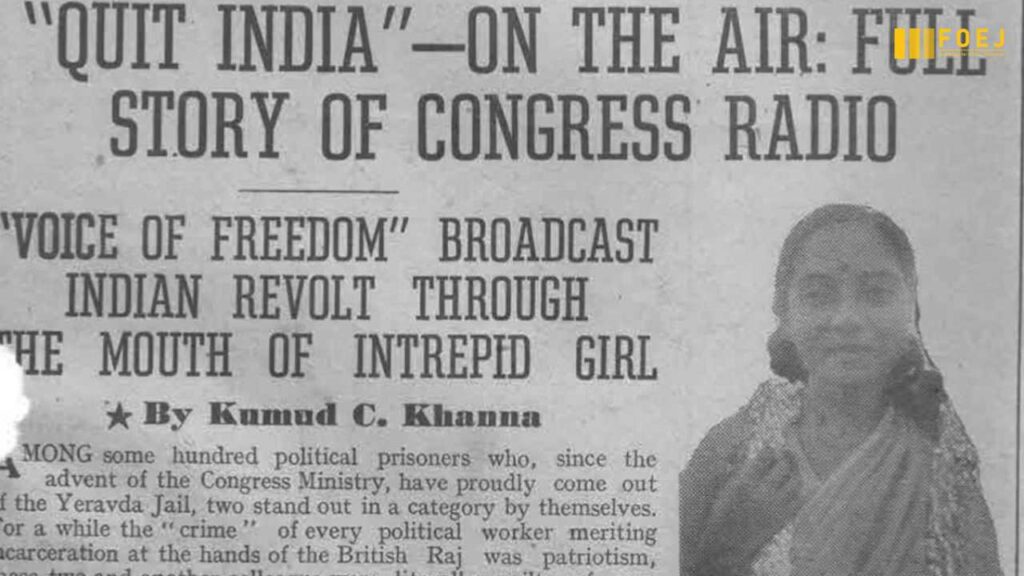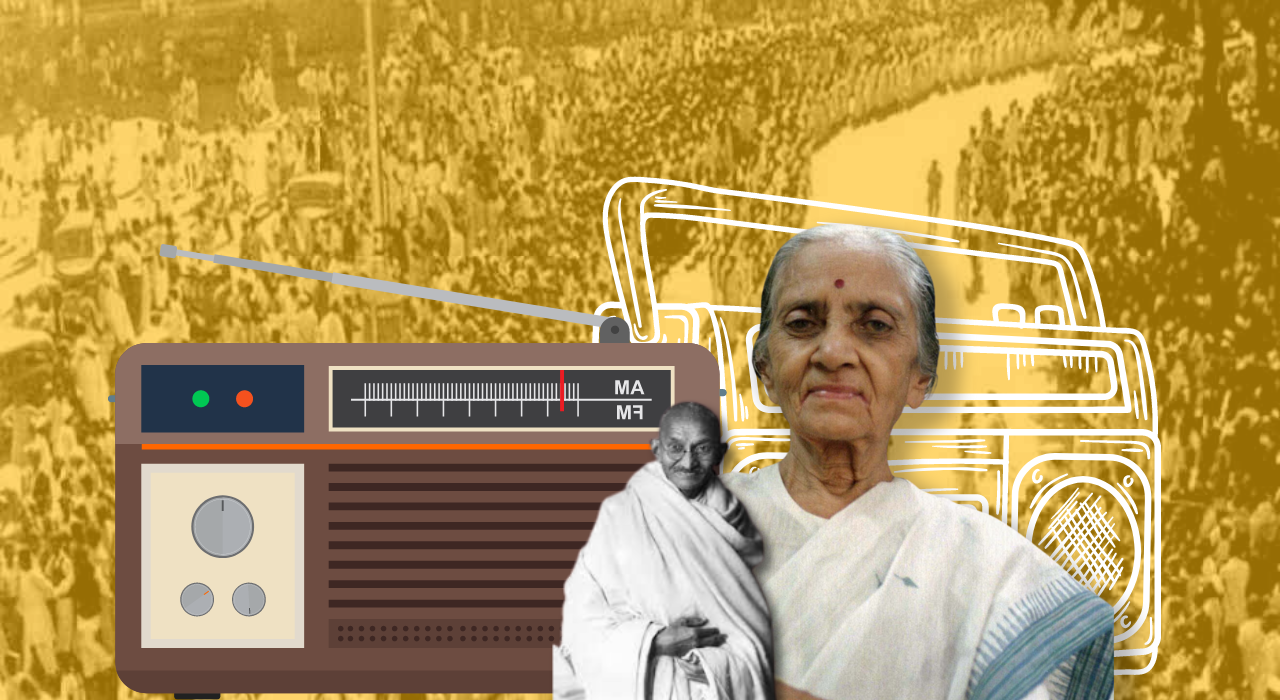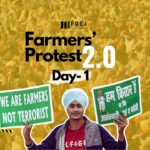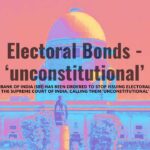The voice of Viceroy Lord Linlithgow, broadcast on All India Radio on September 3, 1939, stated that Germany and Her Majesty’s government were at war with Germany. India, being a colony, did not receive this news well from the Indian National Congress leaders. Despite the Viceroy’s lack of consultation with Indian leaders, the Legislative Assembly, or his advisers, India had entered the Second World War. The resistance to British authority became more pronounced, and on August 8, 1942, over three years into the war, thousands of people turned out to attend the All India Congress Committee gathering at Bombay’s Gowalia Tank Maidan. It was here that the historic Quit India Resolution, proclaimed by Mahatma Gandhi’s “Karenge ya Marenge” (Do or Die), was passed.
End to one movement is..
Before hoisting the national flag at Gowalia Tank Ground on August 9, 1942, as a symbol of the Quit India movement, Mahatma Gandhi, along with all the important leaders of the freedom movement, was arrested. Aruna Asaf Ali stood steadfast, hoisting the national flag at Gowalia Tank Ground and thus initiating the greatest movement of all time. The British cracked down heavily on the Quit India Movement, jailing nearly 60,000 Indians, including most of the Congress leadership, within twenty-four hours. Bombay became a hotspot for protests, with thousands taking to the streets, targeting police stations, train stations, government buildings, telephones, and any other means of communication that the British used to maintain control.

..Rise To Another
On the other hand, Congress began to see communication with the masses as the key to success. Thus, the Quit India Movement in 1942 laid the groundwork for an intensifying revolution in India’s struggle for freedom. With the immediate call to end British rule in India, what we now remember as “Underground Congress Radio” began. As thrilling as the name sounds, so was its journey.
Known by various names such as Freedom Radio, the Ghost Radio, and the Congress Radio, this mysterious radio became a tool of the National Congress to bolster the freedom struggle.
“This is the Congress Radio, broadcasting at 42.34 meters from somewhere in India,” the first announcement declared, marking the beginning of the radio on August 27, 1942. Usha Mehta, the reason behind this announcement, laid the foundation for a clandestine radio station on August 14, 1942.
She and her close associates launched the underground Congress Radio, which officially went on air on August 27. As an initiative to keep the masses connected to Gandhi and other prominent leaders, pre-recorded messages were played. However, they were eventually discovered on November 12, 1942, leading to the arrest of all their organizers, including Usha.
Usha shouted ‘Simon Go Back’
In the anecdotes of India’s struggle for independence, the story of Usha shines through resistance and determination. From her early days as a teenager responding to Gandhi’s call for civil disobedience to her role in operating the ‘Ghost Radio’, her courage and commitment to the cause of freedom go without saying.
Usha was born into a family that was deeply rooted in nationalism, giving her the essence of the freedom struggle right from a tender age. She was born in Saras( today the western state of Gujarat), the place Gandhi was born. It was also the site of his iconic ‘Dandi March’ (Salt March) in 1930.

Inspired by the Salt March, she found herself at the forefront of civil disobedience campaigns. In an interview in Naveen Joshi’s book, Freedom Fighters Remembered, Usha said, “The first slogan I shouted against the British was ‘Simon Go Back’. On asking what inspired her for the struggle, she said, “
Her father resigned as a judge in 1933, and the family relocated to Bombay, now Mumbai. Nine years later, Mehta heard Gandhi speak at the Congress party’s momentous conference, the All India Congress Committee gathering at Bombay’s Gowalia Tank Maidan.
Usha Mehta, who was a master’s student at Wilson College at that time, was among the crowd, and Gandhi’s motto struck her heart. Announcing that all the leaders of the Congress could soon be arrested, Gandhi encouraged everyone “to act as his or her own leader and find out activities that they can undertake on their own.”
..and she never stopped
In an interview, Usha said, “Call was given by Mahatma Gandhi ‘to do or die’, so we thought it would be better to have a broadcasting station of our own because a transmitter is the best way to give the news of the freedom struggle, and to reach it took every corner of the country.”
“When the press is gagged and all news is banned, a transmitter certainly helps a good deal,” Usha Mehta said. Initially, they transmitted twice a day in Hindi and English. However, they limited it to once in the evening between 7.30 and 8.30 p.m.
The channel aired a wide range of narration, from merchants refusing to export grains to the arrests of leaders and citizens. “We received news from all throughout India through special couriers. In addition, the office of the All India Congress Committee, which was in Bombay at the time, used to provide us with critical news,” she explained in an interview.
“When newspapers dared not touch upon these subjects under the prevailing conditions, it was only the Congress radio that could defy the orders and tell the people what actually was happening.”
Many notable leaders radically commented during these broadcasts, alarming the British. On this, Mehta said, “(Police) vans used to chase us regularly, and very often it was merely a question of touch and go.” However, they continued to travel in order to throw the authorities off their scent; Mehta estimated that they changed sites six to seven times over the three months they transmitted.
A Fall to Rise Again: Vande Mataram..
After three months of successful work, they were imprisoned on November 12, 1942, following police raids on radio businesses, including the Chicago Radio Company.’s shop, where technicians such as Jagan Nath were detained. Babubhai Khakkar, Vithal Bhai Jhaveri, and Usha, who was essentially in charge of the radio operation, were all targeted.
“They raided the office of Babubhai Khakkar on November 12. Myself and two other colleagues were present in the office when it was raided. When we came to know that the police had come to the office, we tried to remove the range of the important files and literature connected with Congress Radio and were successful in that,” Usha narrated the incident.

As soon as Usha Mehta learned of the arrests, she went to the broadcasting station, where Dr. Lohia resolved to continue broadcasting regardless of the raid. Another transmitter was rapidly assembled overnight.
..Kept Playing
One of the technicians betrayed them and hindered one last broadcast; nevertheless, they continued to transmit until stopped by the Deputy Commissioner of Police at the end of the program, who ordered them to stop playing “Vande Mataram,” which they denied.
In the interview, Usha narrated, “The breaking of the doors perhaps served as a call-sign of our arrest. Immediately, there was darkness everywhere, and the police were afraid that perhaps we would escape. Nothing of the sort, however, happened. Because Bapu had taught us to face the consequences of our act. The police were afraid that perhaps we would escape. Nothing of the sort, however, happened. Because Bapu had taught us to face the consequences of our act.” All of them were arrested.
Following investigations, five people, including Vithaldas, Vithelbhai, Chandrakantbhai, Hamak Motwani, and Usha, were prosecuted. Vithalbhai and Nanak Hotwani were acquitted, while Chandrakantbhai received one year, Babubhai five years, and Usha four years of harsh prisonment.
Released in April 1946, Usha Mehta went home, glad to have helped the freedom movement in accordance with Gandhi’s message of “Do or Die.”









